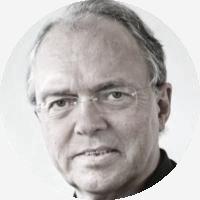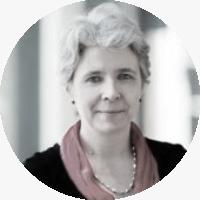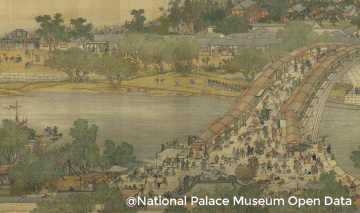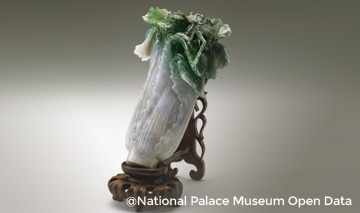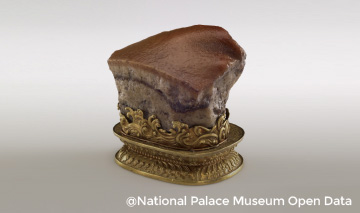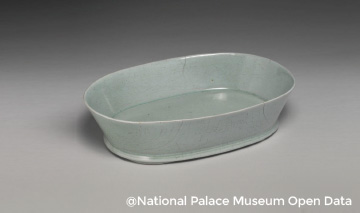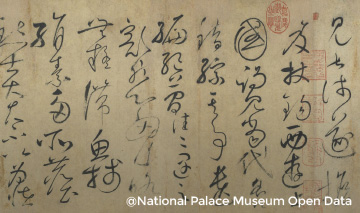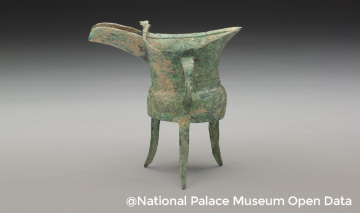Ovid J. L. Tzeng, Host of APRI Network Meeting 2018, University System of Taiwan, Taiwan
Leehter Yao, Political Deputy Minister, Ministry of Education, Taiwan
PROGRAM
APRI Network Meeting 2018
PROGRAM
Event Schedule

Date: February 26-28, 2018
Venue: Howard Civil Service International House, Taipei, Taiwan
DOWNLOAD
Ovid J. L. Tzeng, Chancellor, University System of Taiwan, Taiwan
Michael Kalichman, Director, Research Ethics Program, University of California, San Diego, USA
Panel speaker:
Mai Har Sham, Associate Vice President, The University of Hong Kong, Hong Kong
Plenary Chair:
Susan Garfinkel, Assistant Vice President for Research Compliance, The Ohio State University, USA
Panel speaker:
Surendra S. Shastri, Chair, Department of Preventive Oncology, Tata Memorial Centre, India
Plenary Chair:
Susan Garfinkel, Assistant Vice President for Research Compliance, The Ohio State University, USA
Venue: Garden Restaurant, 1F, Accommodation Building
Panel speaker:
Ted Rohr, Director, Research Ethics and Compliance Support, University of New South Wales, Australia
Plenary Chair:
Danny Chan, Deputy Director, Education and Development of Research Integrity, The University of Hong Kong, Hong Kong
Panel speaker:
Michael Cheng-tek Tai,Chair Professor of Bioethics and Medical Humanities, Institute of Medicine, Chung Shan Medical University, Taiwan
Plenary Chair:
Danny Chan, Deputy Director, Education and Development of Research Integrity, The University of Hong Kong, Hong Kong
Ovid J. L. Tzeng, Chancellor, University System of Taiwan, Taiwan
Michael Kalichman, Director, Research Ethics Program, University of California, San Diego, USA
Panel speaker:
Iekuni Ichikawa, Executive Director, Association for the Promotion of Research Integrity ,Japan
Plenary Chair:
Danny Chan, Deputy Director, Education and Development of Research Integrity, The University of Hong Kong, Hong Kong
Speaker:
Danny Chan, Deputy Director, Education and Development of Research Integrity, The University of Hong Kong, Hong Kong
Chair:
Daniel Barr, Principal Research Integrity Advisor, Research Office, Royal Melbourne Institute of Technology University, Australia
Speaker:
Paul Taylor, Director, Research Integrity, Governance and Systems, Royal Melbourne Institute of Technology University, Australia
Chair:
Daniel Barr, Principal Research Integrity Advisor, Research Office, Royal Melbourne Institute of Technology University, Australia
Chair:
Chien Chou, Director, Office of Academic Ethics and Research Integrity, National Chiao Tung University, Taiwan
Venue: Learning Room 201, 202, 203, 204, 205, Teaching Building
● Avoiding Research Waste in Journal Publishing Integrity: Measures to Identify “Suspicious &
Questionable” Paid OA Journals for Young Researchers and Academia
Kamaruzaman Jusoff, Universiti Malaysia Sarawak, Malaysia
● Is Authorship Revisable?
Xue Deng, The University of Hong Kong, Hong Kong
Wing-Yuk Ip, The University of Hong Kong, Hong Kong
● Editorial Board Members Publish in Their Own Journals – A Scope for Publication Bias
Sivakumar Arunachalam, International Medical University, Malaysia
● Reflection on NTU Fraud Case in 2017
Li-Shiue Gau, Asia University, Taiwan
Chair:
Yuan-Hsuan Lee, Assistant Professor, Department of Education and Learning Technology, National Tsing Hua University, Taiwan
Venue: Learning Room 202, Teaching Building
● A White Paper on Korean Research Ethics Policy and Practice
Chang-Sub Uhm, Korea University, South Korea
Eun Young Kyung, Korea University, South Korea
In Jae Lee, Seoul National University of Education, South Korea
● Analysis of Research Ethics Concerns of CRE Users
In Jae Lee, Center for Research Ethics Information, South Korea
Hwawon Jessica Bae, Center for Research Ethics Information, South Korea
● The Research Practice Survey for NSTDA Research Quality Development
Ansucha Prucksunand, The Ministry of Science and Technology, Thailand
Supattra Laorrattanasak, The Ministry of Science and Technology, Thailand
Prasit Palittapongarnpim, The Ministry of Science and Technology, Thailand
● An Analysis of RCR Educational Requirements in Taiwan’s Research Universities
Zhen-Rong Gan, National Cheng Kung University, Taiwan
● Asking New Questions about Scientific Integrity
Matthias Kaiser, University of Bergen, Norway
Chair:
Susan O'Brien, Research Integrity Manager, Office of Research Integrity, The University of Queensland, Australia
Venue: Learning Room 203, Teaching Building
● Promoting Research Integrity in an Inquiry Course with a Social Constructivist Pedagogy
Ai Girl Tan, Nanyang Technological University, Singapore
● Research Integrity Practice in Cambodia: Experience of Research-Active Lecturers in a Public
University
Vutha Ros, Royal University of Phnom Penh, Cambodia
Chanphirun Sam, Royal University of Phnom Penh, Cambodia
● A Discipline-Specific Approach to Research Ethics Education for Research Postgraduate Students
at The University of Hong Kong
Wai Lan Tsang, The University of Hong Kong, Hong Kong
● Assessing and Building Capacity for the Responsible Conduct of Research (RCR) at King
Mongkut’s University of Technology Thonburi (KMUTT)
Eliza I. Stefaniw, King Mongkut’s University of Technology Thonburi, Thailand
Namol Vorapreeda, King Mongkut’s University of Technology Thonburi, Thailand
Supapon Cheevadhanarak, King Mongkut’s University of Technology Thonburi, Thailand
Phongsri Waysarach, King Mongkut’s University of Technology Thonburi , Thailand
● And Then They Did What?!! Using Scenarios in Effective Research Integrity Training
Susan O'Brien, The University of Queensland, Australia
Chair:
Daniel Fu-Chang Tsai, Professor, Department & Graduate Institute of Medical Education & Bioethics, College of Medicine, National Taiwan University, Taiwan
Venue: Learning Room 204, Teaching Building
● Research Integrity & Compliance in Faculty of Tropical Medicine, Mahidol University
Boosaree Titapiwatanakun, Mahidol University, Thailand
Pornpimon Adams, Mahidol University, Thailand
Srisin Khusmith, Mahidol University, Thailand
● A Method of Sponsorship Bias and Dental Implants
Indumathi Sivakumar, SEGi University, Malaysia
● Systems-Level Impediments to Trustworthy Biomedical Research
Mark Yarborough, University of California Davis, USA
● Some Ethical Reflection on the Research Misconduct Cases in East Asia
Daniel Fu-Chang Tsai, National Taiwan University, Taiwan
Chair:
Mei-Chih Huang, Professor, Department of Nursing, National Cheng Kung University, Taiwan
Venue: Learning Room 205, Teaching Building
● End-to-End Research Data Management for Responsible Conduct of
Research
Louise Wheeler, University of Technology Sydney, Australia
Sharyn Wise, University of Technology Sydney, Australia
Peter Sefton, University of Technology Sydney, Australia
● An Active Learning-Based Approach to Enhance Responsible Conduct of
Research Education in Malaysia
De-Ming Chau, Universiti Putra Malaysia, Malaysia
Lay-Ching Chai, University of Malaya, Malaysia
Abhi Veerakumarasivam, Sunway University, Malaysia
● Knowledge, Attitude and Practices on Responsible Conduct of Research
(RCR) among Malaysian Researchers
Lay Ching Chai, University of Malaya, Malaysia / Young Scientists Network
Academy of Sciences Malaysia, Malaysia
De-Ming Chau, Universiti Putra Malaysia, Malaysia / Young Scientists Network
Academy of Sciences Malaysia, Malaysia
Abhimanyu Veerakumarasivam, Universiti Putra Malaysia, Malaysia / Young
Scientists Network Academy of Sciences Malaysia, Malaysia
● Good Practices for Research Integrity Promotion: Synergies among Global
and Regional Initiatives
Snežana Krstić, Independent researcher and consultant, Serbia
Host by Ovid J. L. Tzeng , Chancellor, University System of Taiwan, Taiwan
Venue: Howard’s Yueshiang Restaurant, 2F, Accommodation Building
Keynote speaker:
Lex Bouter, Professor of Methodology and Integrity, Department of Epidemiology and Biostatistics, VU University Medical Center, The Netherlands
Chair:
Ovid J. L. Tzeng, Chancellor, University System of Taiwan, Taiwan
Keynote speaker:
Virginia Barbour, Director, Australasian Open Access Strategy Group / Advisor, Office of Research Ethics and Integrity and Library, Queensland University of Technology, Australia
Chair:
Ovid J. L. Tzeng, Chancellor, University System of Taiwan, Taiwan
Chair:
Michael Kalichman, Director, Research Ethics Program, University of California, San Diego, USA
Venue: Teaching Building

Venue: Conference Room, 1F, Conference Building
Panel Chair:
Zoë Hammatt, President, Z Consulting, LLC , USA
Panel Members:
Breakout session group leaders / reporters
Venue: Conference Room, 1F, Conference Building
Traditional Chinese Performance (optional)
National Palace Museum (optional)
Speaker:
In Jae Lee, Professor, Seoul National University of Education, South Korea
Chair:
Daniel Barr, Principal Research Integrity Advisor, Research Office, Royal Melbourne Institute of Technology University, Australia
Speaker:
Prasit Palittapongarnpim, Executive Vice President, National Science and Technology Development Agency, Thailand
Chair:
Daniel Barr, Principal Research Integrity Advisor, Research Office, Royal Melbourne Institute of Technology University, Australia
Speaker:
Chien Chou, Director, Office of Academic Ethics and Research Integrity, National Chiao Tung University, Taiwan
Chair:
Daniel Barr, Principal Research Integrity Advisor, Research Office, Royal Melbourne Institute of Technology University, Australia
Panel Chair:
Paul Taylor, Director, Research Integrity, Governance and Systems, Royal Melbourne Institute of Technology University, Australia
Panel Members:
Breakout session group leaders / reporters
Panel Chair:
Paul Taylor, Director, Research Integrity, Governance and Systems, Royal Melbourne Institute of Technology University, Australia
Panel Members:
Breakout session group leaders / reporters
Venue: Conference Room, 1F, Conference Building
Venue: Howard's Yueshiang Restaurant, 2F, Accommodation Building
Venue: Teaching Building

Chair:
Frederick Koon-Shing Leung, Chair Professor and Chairman of Faculty Board, Faculty of Education, The University of Hong Kong, Hong Kong
1 . Mission and Governance Working Group
Speaker: Paul Taylor, Director, Research Integrity, Governance and Systems, Royal Melbourne Institute of Technology University, Australia
2 . Education and Training Working Group
Speaker: Danny Chan, Deputy Director (Education and Development of Research Integrity), The University of Hong Kong, Hong Kong
3 . Website Working Group
Speaker: Daniel Barr, Principal Research Integrity Advisor, Research Office, Royal Melbourne Institute of Technology University, Australia
4 . The 2018 Meeting Working Group
Speaker: Ovid J. L. Tzeng, Chancellor, University System of Taiwan, Taiwan
Panel Chair:
Tony Mayer, Europe Representative and Research Integrity Officer, Nanyang Technological University, Singapore
Panel Members:
Breakout session group leaders / reporters
Venue: Conference Room, 1F, Conference Building
Zoë Hammatt, President, Z Consulting, LLC , USA
Michael Kalichman, Director, Research Ethics Program, University of California, San Diego, USA
[Planning committee and working group members only]
Venue: Learning Room 201, Teaching Building
PROGRAM
Keynote speakers

Measurable Outcomes for Fostering Responsible Conduct of Research
It has become increasingly clear that – on the aggregated level – the impact of questionable research practices (QRP) is much larger than that of the classical ‘deadly sins’ of fabrication, falsification and plagiarism. Responsible conduct of research (RCR) concerns the behaviour of scientists. They are guided by the ‘moral compass’ in their head. A number of stakeholders have a role to play in keeping the moral compass stable and pointing in the right direction. The most important stakeholders are the scientists themselves. They bear the responsibility for maintaining research integrity in their own work and that of their colleagues, first and foremost the PhD students and others they supervise or mentor.
But the moral compass of scientists is of course strongly influenced by what happens in the environment. The big picture seems to be that scientists experience dilemmas and conflicts of interest in daily practice that arise from the fact that what is good for the validity and reliability of science is not always good for their personal career. Many rewards are linked to having positive and spectacular results as these are published more easily in high impact journals and will be cited more often. The various QRP have in common that they can effectively help to get these positive and spectacular results.
Both in the local research climate and in the system of science at large important determinants of RCR and lack thereof can be identified. Sadly, some of these can act as a perverse incentive and lead to QRPs or worse. Empowering the scientist and optimizing the incentives for RCR is the task of the other stakeholders. They should together make it more easy for scientist to keep their moral compass tuned correctly and to live up to the standards of research integrity. We need to recognize that research institutions, funding agencies and scientific journals can and should take measures to foster RCR and to detect and handle instances of major or minor research misbehaviors.
Research institutions have a duty to have clear codes and procedures regarding research integrity, and to ensure good facilities, adequate mentoring, and training in RCR at all levels. Specific arrangements must be made to enable transparency and to monitor research quality, like good data-management and –storage facilities, adequate methodological and statistical support, and a system of internal audits. Institutions should tackle the perverse incentives in their reward system and promote a research climate in which dilemmas can be openly discussed and learning from mistakes is encouraged. Institutions may decide to explore the salient aspects of their research climate and identify promising ways to promote responsible conduct of research by consulting their community of researchers.
At the end of the 5th World Conference on Research Integrity, May 2017, consensus was reached on the Amsterdam Agenda that says: It is now time to place greater emphasis on the assessment of efforts to improve integrity in research and the use of empirical information in developing research integrity policies. Following that lead measurable outcomes will be proposed for the actions research institutions take to foster RCR among their scientific staff and examples of the use of these outcomes will be given.
Advisor, Office of Research Ethics and Integrity and Library
Queensland University of Technology, Australia
Developing a Positive Culture of Online Commentary and Critique
Publishing is changing dramatically, one aspect of which is an increasing move to commentary and critique of academic work, both as preprints and of peer reviewed research. There is an increasing expectation that such commentary will be online and open. There are now a number of journals and aggregated sites that publish such commentary as well as many social media sites where comments can be posted.
But as for many new technologies and behaviors, technical capability has thus far exceeded the development of social norms. We now have a situation where academics, who have had little expectation of the need for or the training in responding to comments, increasingly needing to do so. Furthermore, debate often occurs in an accelerated time frame, and in a manner that is very different from the previous norms of academic debate. There are many examples where online critique has led to important corrections, but there are also many examples of at best pointless, and at the worst, malicious commentary.
There is an urgent need therefore to discuss and agree how commentary and critique of academic work needs to evolve in order to ensure that it supports the long-term aim of a reliable, reproducible academic literature, in a way that is supportive and respectful.
PROGRAM
Invited Speakers

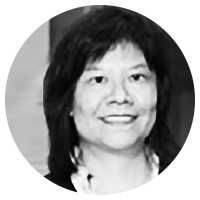
Mai Har Sham
University of Hong Kong, Hong Kong
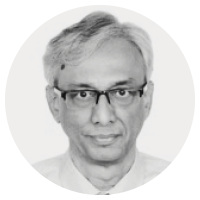
Surendra S. Shastri
Tata Memorial Centre, India

Ted Rohr
University of New South Wales, Australia
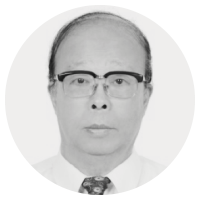
Michael Cheng-Tek Tai
Chung Shan Medical University, Taiwan
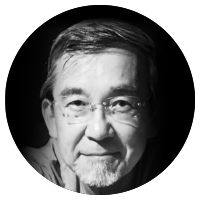
Iekuni Ichikawa
Association for the Promotion of Research Integrity, JAPAN

Danny Chan
University of Hong Kong, Hong Kong

Paul Taylor
Royal Melbourne Institute of Technology University, Australia
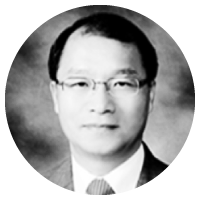
In Jae Lee
Seoul National University of Education, South Korea
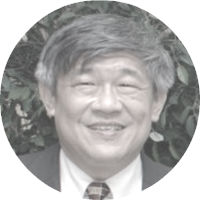
Prasit Palittapongarnpim
National Science and technology Development Agency, Thailand
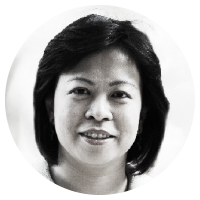
Chien Chou
National Chiao Tung University, Taiwan
PROGRAM
Pre-Meeting Workshop

New Researchers Workshop
The “New Researchers Workshop” has been designed for researchers who are new to conducting research on research integrity. Each participant will present her or his research plans, followed by discussion with workshop faculty and other participants. The hope is that this exercise will be both fun and helpful to strengthen research plans.
Date: February 25, 2018 (Sunday)
Time: 13:30 – 17:00
Venue: Business Center, 3F, Accommodation Building, Howard Civil Service International House
CHAIR:
Michael Kalichman, Director, Research Ethics Program, University of California, San Diego, USA
CO-CHAIR:
In Jae Lee, Professor, Seoul National University of Education, South Korea
PANEL MEMBERS:
Lex Bouter, Professor of Methodology and Integrity, Department of Epidemiology and Biostatistics, VU University Medical Center,
The Netherlands
Zoë Hammatt, President, Z Consulting, LLC, USA
Sophia Jui-An Pan, Project Administrator, Office of Academic Ethics and Research Integrity, National Chiao Tung University, Taiwan
• Registration Deadline: January 3, 2018
• Participants will be notified of further details by January 10, 2018.
Banquet Dinner
Date: February 26, 2018 (Monday)
Time: 19:30 – 21:30
Venue: Howard’s Yueshiang Restaurant, 2F, Accommodation Building,Howard Civil Service International House
*Restricted for meeting participants who have registered for the banquet dinner.
Starring: Kaviyangan Ancient Ballads Troupe
Rainbow is on behalf of the beauty of women in Paiwan traditional story since it is said that there are always iridescent sparkles behind pretty women. Kaviyangan Ancient Ballads Troupe uses rainbow as its symbol to express Paiwan attractive culture by their great voice. It is the second year of Kaviyangan Ancient Ballads Troupe’s establishment. They practice mainly Paiwan ancient ballads in community classes and winter and summer vacation. Although it is a small school with less than 50 students in, the troupe has kept achieving good results in various competitions. The goal of Kaviyangan Ancient Ballads Troupe is to share and popularize Paiwan art and culture which is the most precious treasure of Taiwan to more and more people.
Tracks:
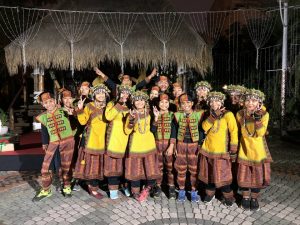
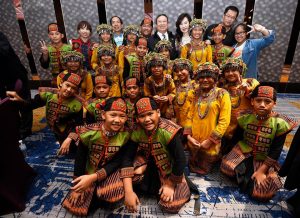
Social Event
National Palace Museum
The National Palace Museum, located in Taipei City, has a permanent collection of 694,090 pieces of ancient Chinese artifacts and artworks, one of the greatest collections in the world. The collection encompasses over 5,000 years of Chinese history.
The cost of visit is included in the meeting registration fee. However, in order to arrange the transportation between National Palace Museum and meeting venue, please register for the visit during registration.
Date: February 27, 2018 (Tuesday)
Meeting time: 15:20
Meeting point: Lobby of Conference Building
Distance: 40 minutes’ drive
Visiting times: 2 hours (16:20-18:20)
Return meeting point: Front gate of National Palace Museum
Return departure time: 18:30
Website: www.npm.gov.tw/en
Social Event
Traditional Chinese Performance
- PART I
In Chinese, “Tiao” means “dance” and “Jia Guan” means “promotion.” The actor plays the deity who brings good lucks to everybody. This dance represents good fortune, peace and wealth.


- PART II
The Eight Immortals of Taoism are derived from the Chinese legendary and they represent the man, the woman, the senior, the junior, the poor, the lowly, the rich and the distinguished with the versatile and popular stories relating the ordinary people. After the immortality banquet held by Madame Wong, Mr. Dong-Bin Lu goes with other seven celestials to cross the Eastern Sea, fighting and playing with the Carp celestial along the way. Each of them shows their special powers in the splendid ways. (During the performance, it is customary for the audience to applaud in appreciation for outstanding demonstration of skill by the actors.)


The cost is included in the meeting registration fee.However, in order to arrange the transportation, please register online (free of charge).
【Transportation Notices】
1.《From Howard Civil Service International House》
2.《From National Palace Museum》

